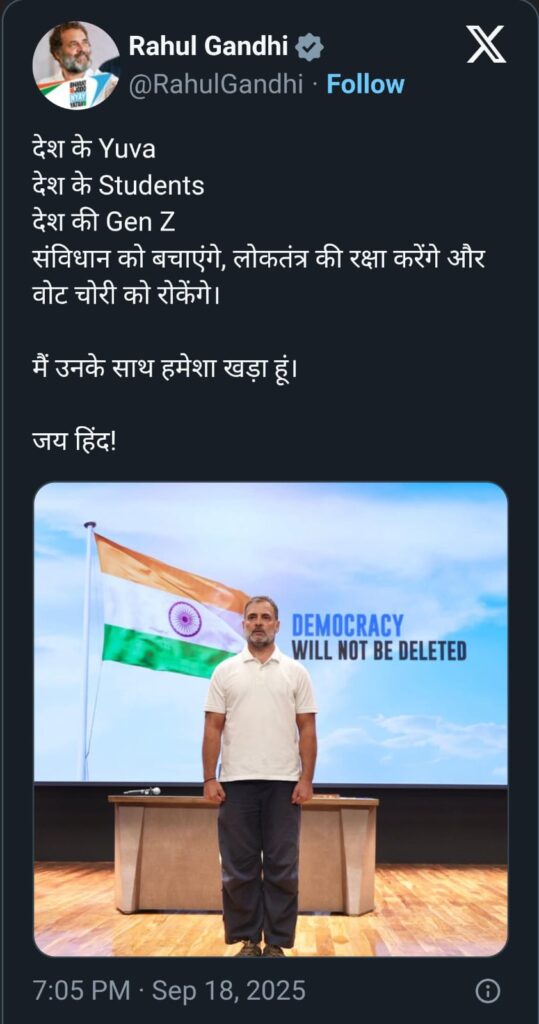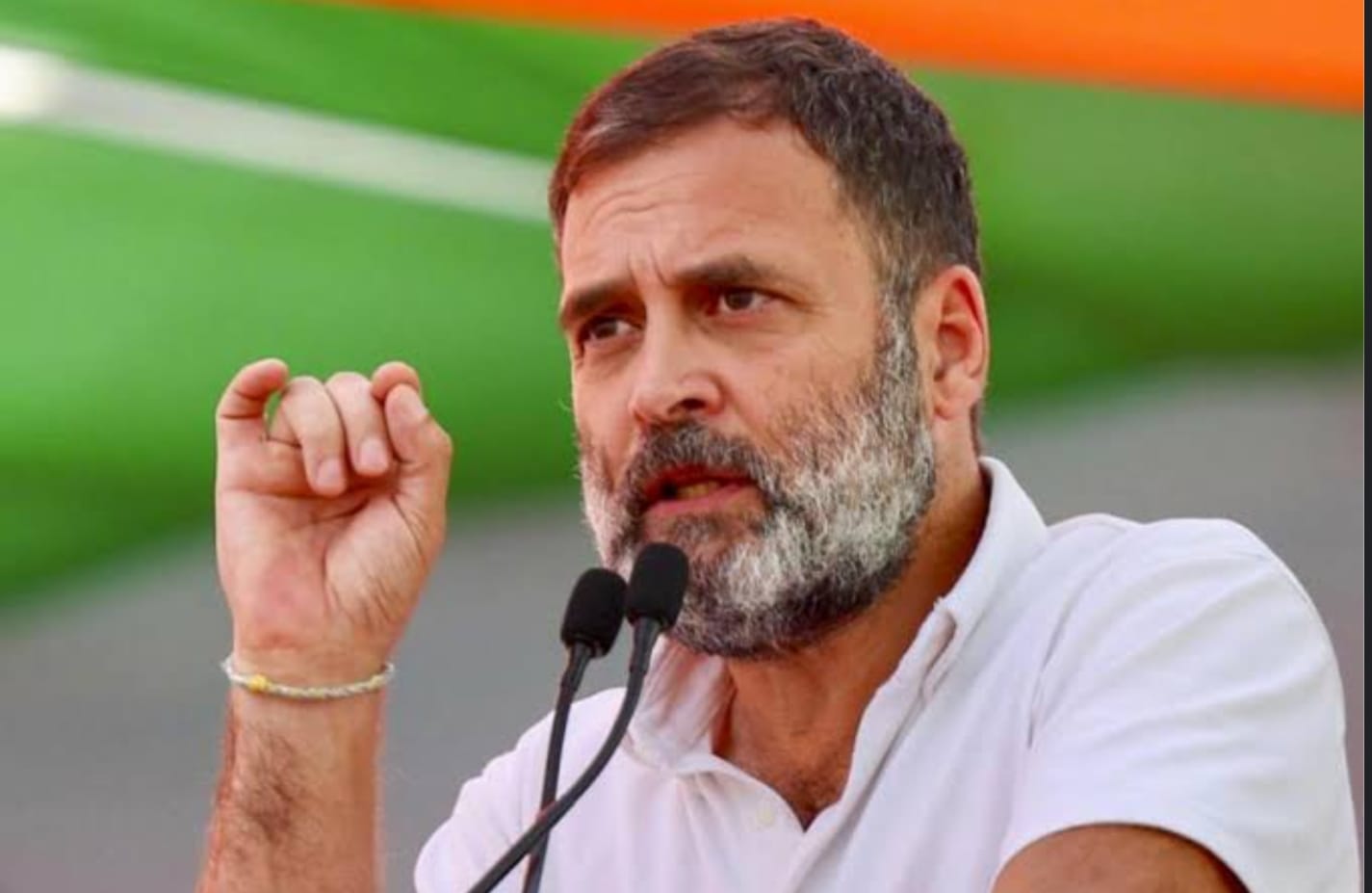Article Today, New Delhi:
Congress leader Rahul Gandhi’s recent tweet invoking ‘Gen Z’ has sparked intense debate across political circles. By specifically highlighting the younger generation, he appeared to echo the wave of youth-led protests that recently reshaped politics in Nepal. His words have now become a focal point in the broader political battle.

Context from Nepal
Only days ago, Nepal witnessed large-scale demonstrations led by its younger generation. The protests turned violent, leading to more than 50 deaths and the resignation of Prime Minister K.P. Sharma Oli. The appointment of Sushila Karki as interim Prime Minister marked a rapid political shift. Rahul Gandhi’s reference to “Gen Z” in this backdrop is being viewed as significant.
Bangladesh Example
Observers also point to Bangladesh, where student unions and Islamic organisations played a decisive role in ousting Sheikh Hasina’s government. In both cases, youth activism reshaped political outcomes. BJP supporters now question whether Rahul Gandhi is hinting at a similar course of action in India.
Allegations of Vote Tampering
Alongside his tweet, Rahul Gandhi renewed allegations of electoral malpractice. He cited the Aland constituency in Karnataka, claiming that nearly 6,000 votes were deleted. According to him, software manipulation enabled large-scale removal of voters in Congress strongholds, allegedly using fake logins and external phone numbers.
Election Commission Response
The Election Commission swiftly dismissed these allegations as baseless. It asserted that the claims lacked evidence and accused the Congress leader of misleading the public. BJP leaders echoed this view, arguing that Rahul Gandhi was making such statements out of fear of electoral defeat.
Political Strategy Questioned
Despite the rebuttals, Rahul Gandhi’s tweet continues to draw interest. He stated that the youth, students, and the Gen Z generation would defend the Constitution and democracy and prevent electoral fraud. He added that he would always stand by them. Political observers are divided on whether this signals a new strategy or a rhetorical flourish.



